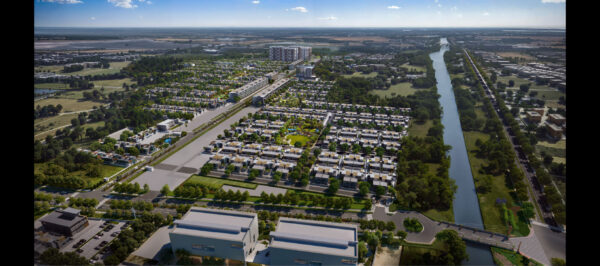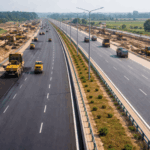Indian real estate market to remain robust despite higher interest rates
by Sachin Patel, CMD, Swaminarayan City
India has demonstrated resilience and is emerging from a decade-long downturn due to strong demand, defying a global trend of falling housing prices as mortgage rates rise and crimp affordability.
While rising inflation and interest rates may impact demand in the short run, the industry is poised for steady growth over the next two to three years, and thus home ownership is likely to increase.
Real estate industry stakeholders, including developers, financiers, and institutional investors, remain optimistic about the business environment over the next 12 months, bolstered by the resilience of the Indian economy in the face of a global recession.
According to recent reports, home sales in India's prime residential markets have increased in 2023, driven by sustained demand. New launches in these cities increased similarly, driven by a desire to own a house. The report also stated that residential real estate experienced the quickest turnaround post-pandemic due to sustained buyer confidence in immovable assets.
Can rising interest rates impact home buyer sentiments?
There is no denying that an increase in the repo rate would have a negative impact on housing affordability. The rise in average property prices over the last year adds to the pricing pressure. However, this has yet to negatively impact buyer sentiment, which has remained relatively robust. Much of this positive sentiment could be attributed to a shift in mindset caused by the coronavirus pandemic.
Most developers anticipate that home sales during the October-December period will reach a decadal high due to increased homebuyers' personal spending capacity. There is also an underlying pent-up demand for property because most buyers have postponed their purchase decisions over the last two years due to prolonged periods of lockdown and lockdown-like situations.
Growth in India real estate is also being driven by demand from non-resident Indian buyers who have discovered an ideal opportunity to invest in their home country as the value of the dollar has increased their purchasing power. Property purchases in India for an NRI buyer are highly beneficial from an investment standpoint at a time when the rupee is hovering around the 80 level against the US dollar.
Home affordability to rise to a three-year high in 2024
According to JLL's report on the Home Purchase Affordability Index (HPAI), affordability for home purchases is expected to improve in 2024, based on the expectation of a 60-80 bps repo rate cut during the year. This will keep buyers' affordability within a very comfortable range while maintaining market momentum over the next year.
Indian real estate has remained popular throughout the current fiscal year. The return of the workforce to major cities, as well as recent festive spending, have boosted demand and ensured consistent sales. Strong economic fundamentals and improved global economic growth prospects may cause the interest rate cycle to reverse mildly. It would have a significant positive impact on affordability levels in 2024.
The real estate market prices are driven by a wide variety of factors
The real estate market is intricate. Various local, regional, national, and global factors influence prices. While basic concepts such as supply and demand are important, other factors such as mortgage rates, inflation, and even economic conditions in other countries can all impact the real estate market.
A strong economy allows employers to raise wages enough to compensate for rising interest rates. A rise in interest rates should not paralyse the real estate market as long as the economy continues to grow and there is job and wage growth.
Consumer confidence remains high, and we expect the government's proposed sector-specific initiatives to benefit all market participants, including home buyers, developers, land owners, and tenants.
Rising income and employment levels, increased spending capacity, the desire for financial and emotional security, and a preference for larger homes with upgraded amenities have all contributed to a surge in property sales this year. According to experts and industry officials, while rate hikes are a depressant, they cannot be the sole reason why a committed buyer decides not to seek financing. Many fundamental factors, such as geography, demographics, and the growing culture of nuclear families, play a role. Favourable tax regimes and the government's emphasis on the real estate sector also support housing demand.
Housing demand will sustain India's real estate despite interest rate hike
India's demand for housing and commercial spaces has skyrocketed due to its massive population, rapid urbanisation, and rising incomes. Furthermore, real estate has a special place in the hearts of many Indians, and owning property is frequently regarded as a significant milestone and a symbol of stability and success. All of these factors combine to make real estate a popular investment among Indians. Indeed, real estate is the preferred mode of saving for 49% of Indian households, far outnumbering other asset classes such as equity, gold, and bank deposits.
India's housing market will remain resilient despite rising interest rates and a bleak global economic outlook. Rising interest rates affecting growth through a slowdown in property market spending will not occur in India. The Indian property cycle has a multi-year pent-up demand and is more dependent on pricing sentiments (which are currently strengthening) than mortgage rates.
Residential demand, according to industry experts, will remain robust for another two years, regardless of interest rate increases. While the pandemic has shifted buyer sentiment toward home ownership, a sharp increase in rental rates strengthens the case for investing rather than leasing.
















